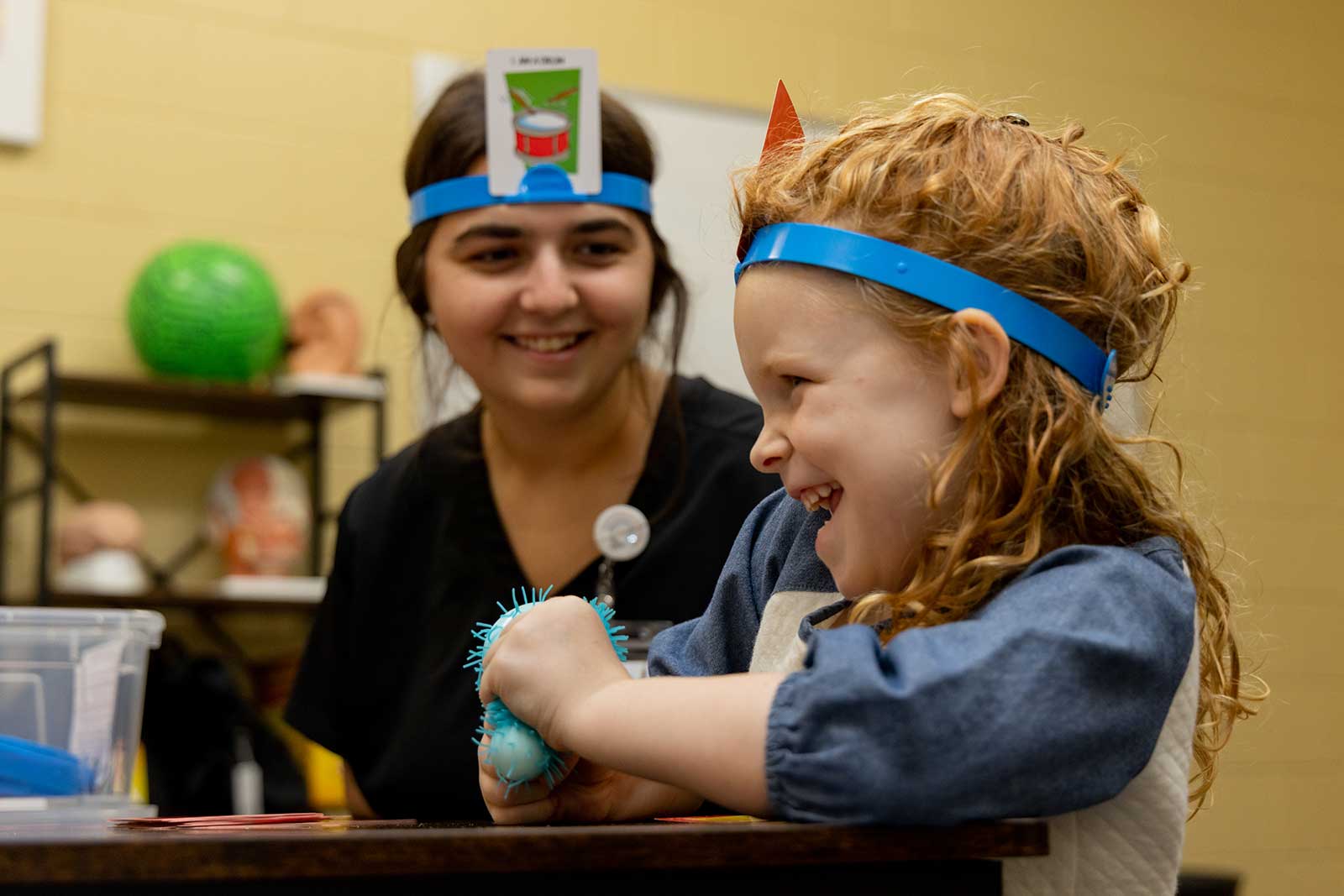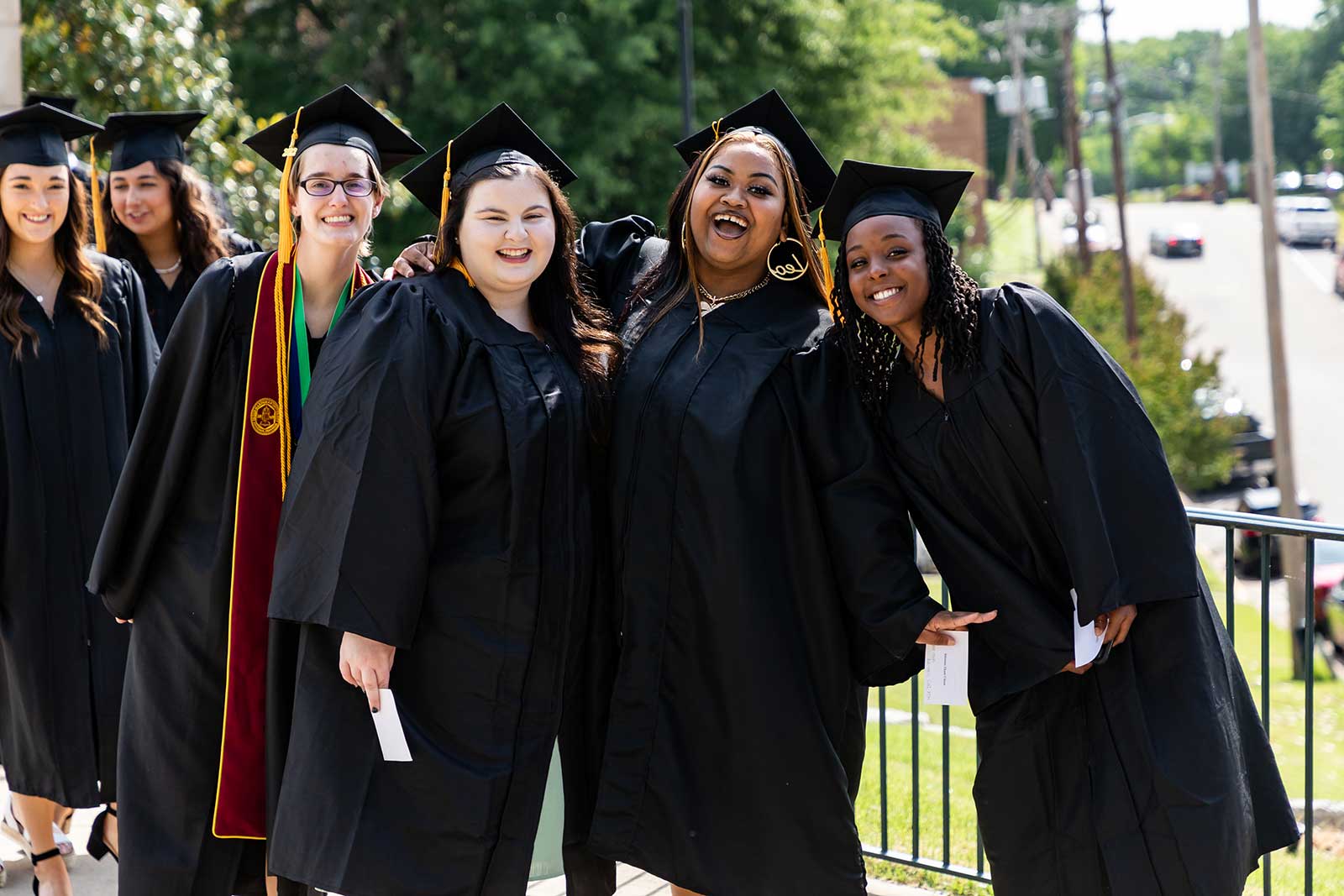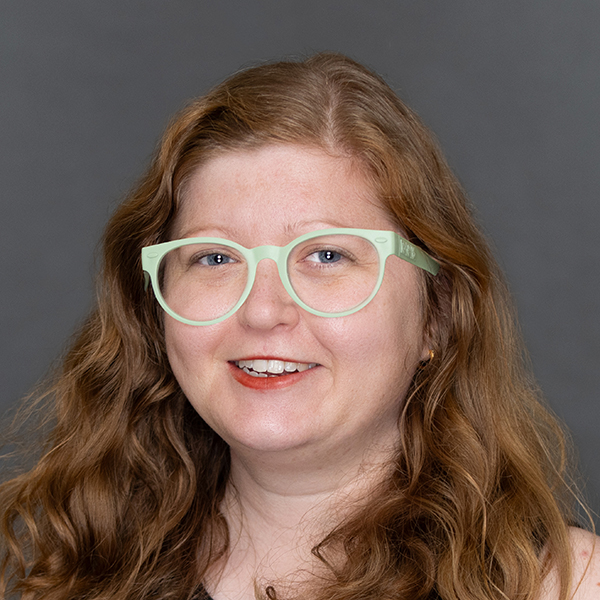major in communication sciences and disorders
Bachelor’s in Communication Sciences and Disorders
B.S. in Communication Sciences and Disorders
Equip yourself for success in the field of Communication Sciences and Disorders by acquiring practical knowledge and real-world skills applicable in various professional settings. Pursue a major in Communication Sciences and Disorders at FHU to prepare for a rewarding career in speech-language pathology, audiology, or related disciplines.
Department:
Department of Biological, Physical and Human Sciences
Department chair name:
Brian P. Butterfield
B.S., M.S., Ph.D.
Program Coordinator:
Dr. Meagan Spencer
Learning at FHU
Why Choose the Communication Sciences and Disorders Degree Program at FHU?

Program Highlights:
- Professional Preparation
- Comprehensive Understanding
- Cultural Competency
- Addressing Diverse Population
- Evidence-Based Practice
- Preparation for Licensure and Certification
- Diverse Career Opportunities
- Speech Clinic
Communication Sciences and Disorders Degree Four-Year Plans
2023-2024 4-Year Plan(s)
2022-2023 4-Year Plan(s)
2021-2022 4-Year Plan(s)
2020-2021 4-Year Plan(s)

Careers for Communication Sciences and Disorders Majors
A degree in Communication Sciences and Disorders (CSD) opens up diverse and rewarding career opportunities for students interested in helping individuals with communication challenges. The program provides comprehensive training and knowledge that prepares graduates to work with various populations and address a wide range of communication disorders.
- Speech-Language Pathologist
- Audiologist
- Communication Disorders Specialist
- Early Intervention Specialist
- School-Based Speech Therapist
- Medical Speech-Language Pathologist
Major in Communication Sciences and Disorders Degree Requirements
A Bachelor’s Degree in Communication Sciences and Disorders is a challenging and rewarding path for students interested in the field of communication sciences. To earn this degree, students must complete the following prerequisite courses and requirements.
I. Liberal Arts Core Requirements
Listed in this catalog under Academics: Liberal Arts Core
Limit II. C. Basic skills to MAT235 Introductory Statistics
Limit III. B. Natural Sciences to CHE 121 General Chemistry I with CHE 121L General Chemistry I Lab
Major Requirements - 27 hours
| CSD | 101 | Intro. to Communication Sciences & Disorders & Interdisciplinary Relationships in Education & Allied Health | 3 |
| CSD | 105 | Normal Speech & Lang. Development & Communication Behavior (W) | 3 |
| CSD | 125 | Guided Observations | 3 |
| CSD | 221 | Phonological and Articulation Disorders | 3 |
| CSD | 222 | Language Disorders Across the Lifespan | 3 |
| CSD | 231 | Phonetics | 3 |
| CSD | 290 | Clinical Methods | 3 |
| CSD | 300 | Audiology | 3 |
| CSD | 321 | Anatomy and Physiology of Speech and Language | 3 |
III. Additional Requirements (choose one emphasis below) - 22 hours
| A. Communication Sciences and Disorders – Non-Clinical | (18 hours) | ||
| CSD | 322 | Speech and Voice Science | 3 |
| CSD | 341 | Cultural Competency in the Communication Sciences | 3 |
| CSD | 380 | Neuroscience | 3 |
| CSD | 400 | Aural Rehabilitation | 3 |
| CSD | 420 | Ethics, Procedure, and Law in Communication Sciences | 3 |
| CSD | 430 | ASHA SLPA Exam Prep Course | 1 |
| CSD | 450 | Senior Capstone: Evidence-Based Practice in the Communication Sciences (W) | 2 |
| B. Communication Sciences and Disorders – Clinical | (22 hours) | ||
| CSD | 322 | Speech and Voice Science | 3 |
| CSD | 341 | Cultural Competency in the Communication Sciences | 3 |
| CSD | 380 | Neuroscience | 3 |
| CSD | 400 | Aural Rehabilitation | 3 |
| CSD | 420 | Ethics, Procedure, and Law in Communication Sciences | 3 |
| CSD | 430 | ASHA SLPA Exam Prep Course | 1 |
| CSD | 450 | Senior Capstone: Evidence-Based Practice in the Communication Sciences (W) | 2 |
| CSD | 325 | Clinic I | 1 |
| CSD | 326 | Clinic II | 1 |
| CSD | 426 | Clinic III | 2 |
IV. Electives (including additional Bible) - 42-46 hours
Frequently Asked Questions About Our Communication Sciences and Disorders Program
Below are answers to questions prospective students often have when considering a major in Communication Sciences and Disorders. If you have additional questions or need more information, please contact [email protected] and we will happily answer questions and provide additional details about our program.
What are the benefits of the Communication Sciences and Disorders program at FHU?
The Communication Sciences and Disorders (CSD) program at FHU offers numerous benefits for students interested in pursuing a career in this field:
- Professional Preparation: The program is designed to provide students with the knowledge and training needed to excel in practice or research within communication sciences and disorders.
- Comprehensive Understanding: Students gain an in-depth understanding of the biological and physical constructs of speech, language, and hearing, enabling them to assess and treat a wide range of communication disorders.
- Cultural Competency: The program emphasizes cultural competency, ensuring students are equipped to work effectively with individuals from diverse backgrounds and communities.
- Addressing Diverse Populations: Students learn to work with various populations, including newborns, children, teens, adults, and geriatrics, as well as individuals with congenital and acquired communication disorders.
- Evidence-Based Practice: The program emphasizes the importance of evidence-based practice, preparing students to utilize the latest research and effective techniques in their clinical work and research.
- Preparation for Licensure and Certification: The program prepares students to meet the post-graduation requirements for state licensure as a speech-language pathology assistant, and some courses help prepare for the American Speech-Language-Hearing Association’s Assistant Examination.
- Diverse Career Opportunities: Graduates of the CSD program are well-prepared for diverse career paths in speech-language pathology, audiology, research, education, healthcare, and various settings where they can make a positive impact on individuals with communication challenges.
In summary, the Communication Sciences and Disorders program at FHU offers a comprehensive and well-rounded education, equipping students with the skills and knowledge to pursue rewarding careers in this vital and impactful field.
What is the job outlook for graduates with a degree in Communication Sciences and Disorders?
The job outlook for graduates with a degree in Communication Sciences and Disorders (CSD) is generally positive and promising. As the demand for speech-language pathologists, audiologists, and other communication disorders specialists continues to grow, there are numerous opportunities for CSD graduates to embark on rewarding careers in various settings. Here are some key factors contributing to the positive job outlook:
- Increasing Demand: The prevalence of speech, language, and hearing disorders is on the rise due to factors such as an aging population, increased awareness, and improved diagnosis. This drives the demand for qualified professionals in the field.
- Educational Settings: Schools also require speech-language pathologists and specialists to work with students who have communication challenges, leading to job opportunities in educational institutions.
- Advancements in Assistive Technology: With advancements in assistive technology, there is a growing need for communication disorders specialists who can work with individuals using communication devices and tools.
- Multidisciplinary Approach: CSD professionals often work in collaboration with other healthcare providers, educators, and specialists, making their expertise highly valuable in interdisciplinary teams.
Overall, the job outlook for graduates with a degree in Communication Sciences and Disorders remains positive due to the increasing demand for their expertise in various sectors. As communication disorders continue to be recognized as critical health issues affecting people of all ages, CSD professionals are well-positioned to make a significant impact on individuals’ lives and their communities.
What skills will I learn while earning a degree in Communication Sciences and Disorders at FHU?
While earning a degree in Communication Sciences and Disorders (CSD) at FHU, you will acquire a range of essential skills that are vital for a successful career in the field. Some of the key skills you will learn include:
- Clinical Assessment: You will learn how to assess individuals with communication disorders, including speech, language, hearing, and swallowing, using standardized assessment tools and observation techniques.
- Evidence-Based Practice: You will be trained in using evidence-based practices to develop effective treatment plans and interventions for individuals with communication challenges.
- Communication Interventions: You will learn various techniques and strategies to provide speech therapy, language interventions, and other communication-based therapies tailored to individual needs.
- Cultural Competency: The program emphasizes the importance of understanding and respecting cultural diversity, enabling you to provide sensitive and appropriate services to clients from different backgrounds.
- Clinical Documentation: You will gain skills in maintaining accurate and comprehensive clinical records and reports to track progress and communicate with other professionals and caregivers.
- Professional Ethics: The program will emphasize ethical considerations in the practice of communication sciences and disorders, ensuring that you provide services with integrity and professionalism.
- Problem-Solving: CSD graduates develop strong problem-solving skills to address the unique challenges individuals with communication disorders may face.
These skills will prepare you to work with diverse populations and in various settings, including schools, healthcare facilities, private practices, research institutions, and more. As a graduate with a degree in Communication Sciences and Disorders from FHU, you will be well-prepared to make a meaningful impact on the lives of individuals with communication challenges and contribute to the advancement of the field.
What can I do with a Bachelor of Science in Communication Sciences and Disorders degree?
With a Bachelor of Science in Communication Sciences and Disorders (CSD), you have several career options in various settings that involve working with individuals with communication challenges. While a bachelor’s degree in CSD does not qualify you to become a licensed speech-language pathologist or audiologist, it does open doors to a range of fulfilling roles. Here are some potential career paths you can pursue with a bachelor’s degree in Communication Sciences and Disorders:
- Speech-Language Pathology Assistant (SLPA): With additional training and certification, you can work as an SLPA under the supervision of a licensed speech-language pathologist, assisting in therapy sessions and implementing treatment plans.
- Communication Disorders Specialist: You may work as a specialist in schools, clinics, or rehabilitation centers, providing support to individuals with communication difficulties in areas such as speech, language, fluency, or swallowing.
- Early Intervention Specialist: Work with infants and young children who have communication delays, providing early intervention services to promote language development.
- Assistive Technology Specialist: Assist individuals with communication disabilities by utilizing communication devices and tools to enhance their communication abilities.
- Rehabilitation Aide: In rehabilitation centers or hospitals, work as an aide, supporting patients with communication and swallowing difficulties during their recovery process.
- Research Assistant: Work as a research assistant in labs or academic institutions, contributing to research projects related to communication sciences and disorders.
It’s essential to note that some of these positions may require additional certifications or training beyond the bachelor’s degree. While a bachelor’s in CSD provides valuable knowledge and skills, pursuing a master’s degree in speech-language pathology or audiology is typically required to become a licensed professional in those fields.
Many graduates with a bachelor’s degree in CSD choose to continue their education by enrolling in graduate programs to become licensed speech-language pathologists or audiologists, leading to more specialized and advanced career opportunities in these areas.
Still Deciding on a major?

